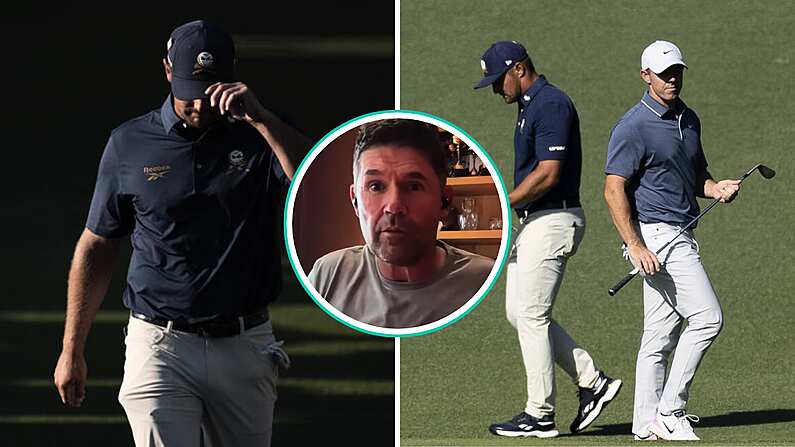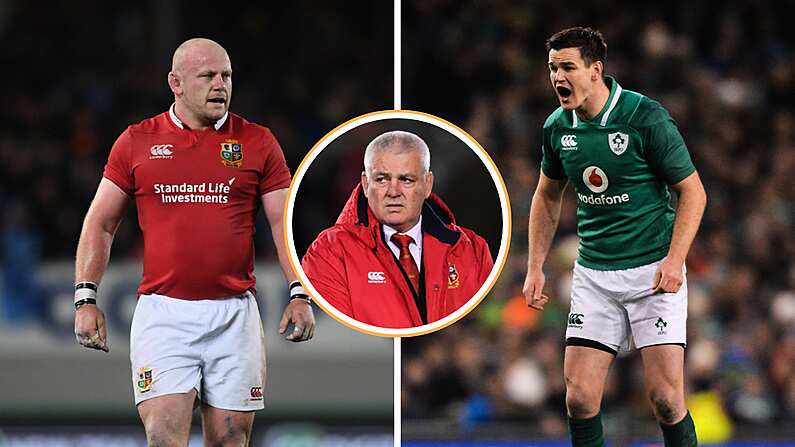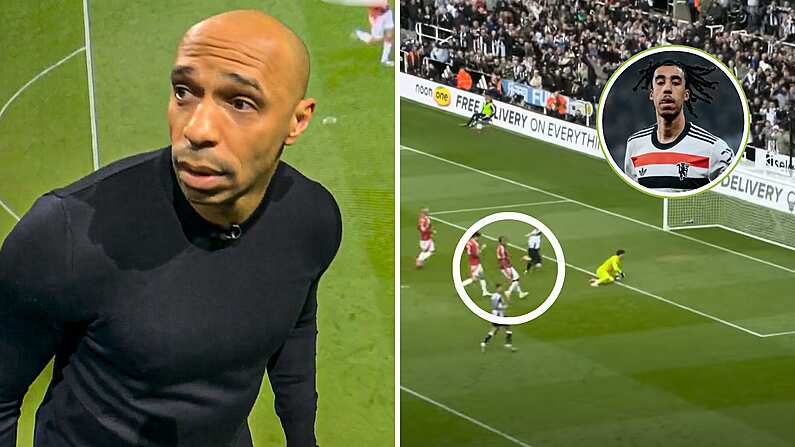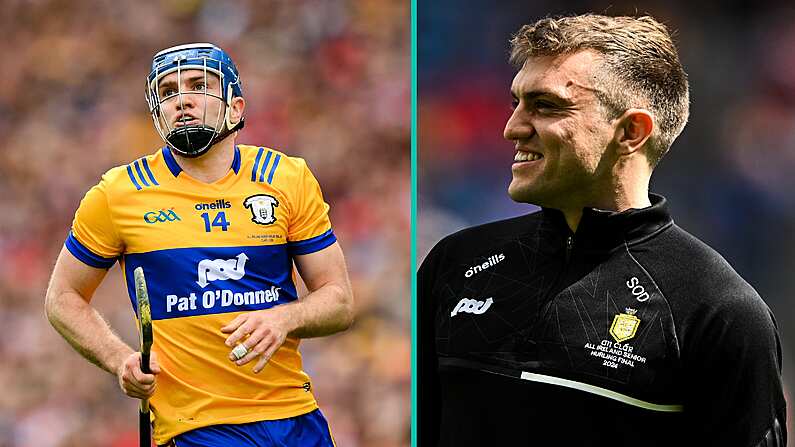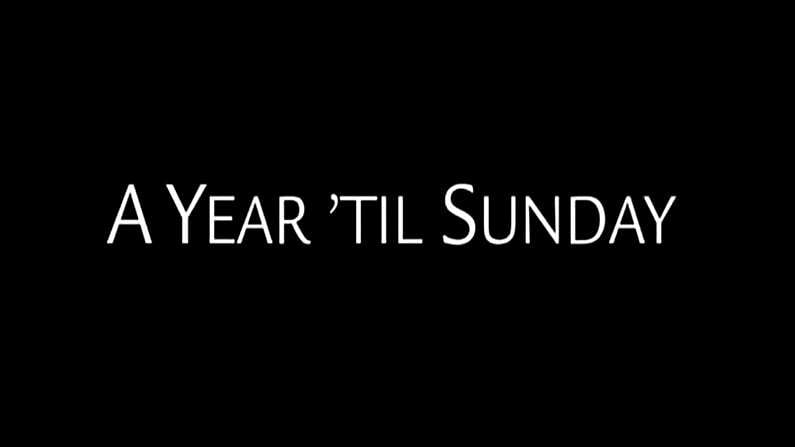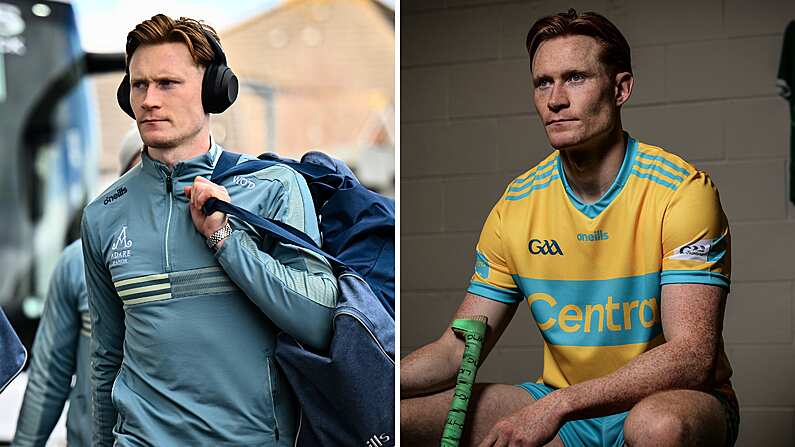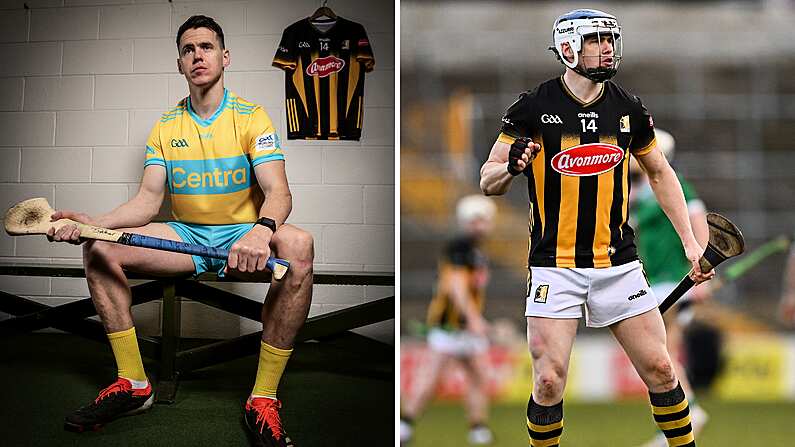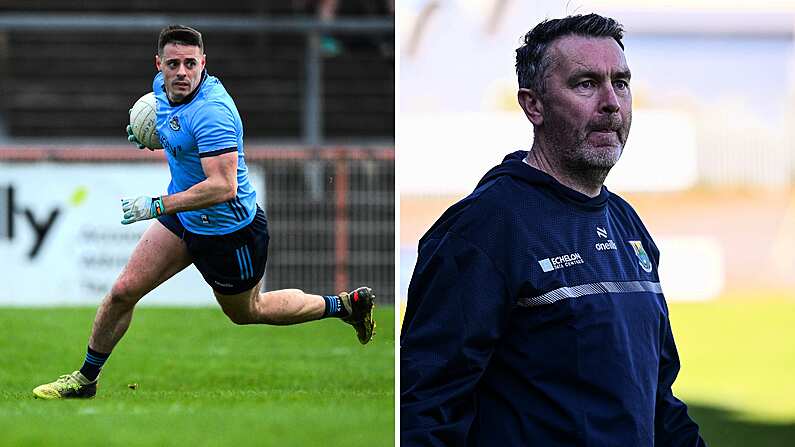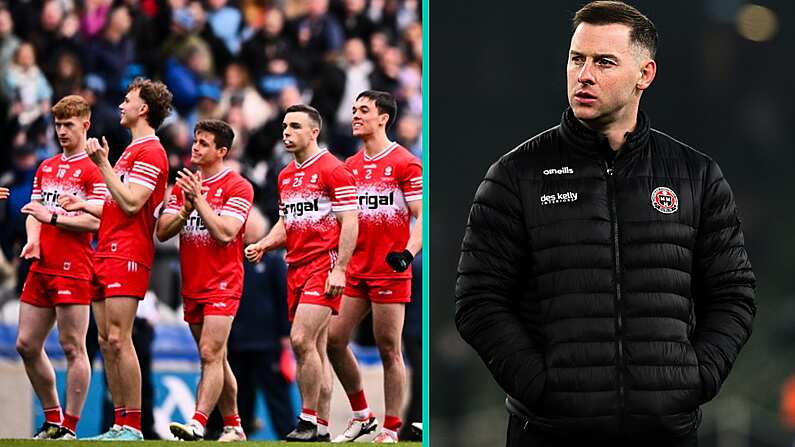This article was originally published in July 2019.
It was a special time when Páidí Ó Sé was appointed as the Westmeath football manager in October of 2003.
He arrived at a county that had never won as much as a provincial title at senior level, and yet had aspirations to compete amongst the best. It was the golden age of football for the county. After claiming All-Irelands success at minor and U21 in 1995 and 1999 respectively, the panel had a winning pedigree. A rarity in Westmeath.
Throwing someone into that mix who had won 10 All-Irelands as a player and manager resulted in a feverish atmosphere that had never really been seen before in the perceived footballing backwater.
It was the perfect storm but few could have predicted the year that lay ahead. It is one of the most remarkable stories in recent GAA history, and it was all caught on camera.
Marooned charted the journey of Westmeath that year, as they ended their 120-year wait for a provincial title. It was captivating television, and Páidí was the star.
It was his story. It was Westmeath's story. It was everything that was great about Páidí Ó Sé, and about the GAA. It's been 15 years, but this tale is more captivating now than ever.
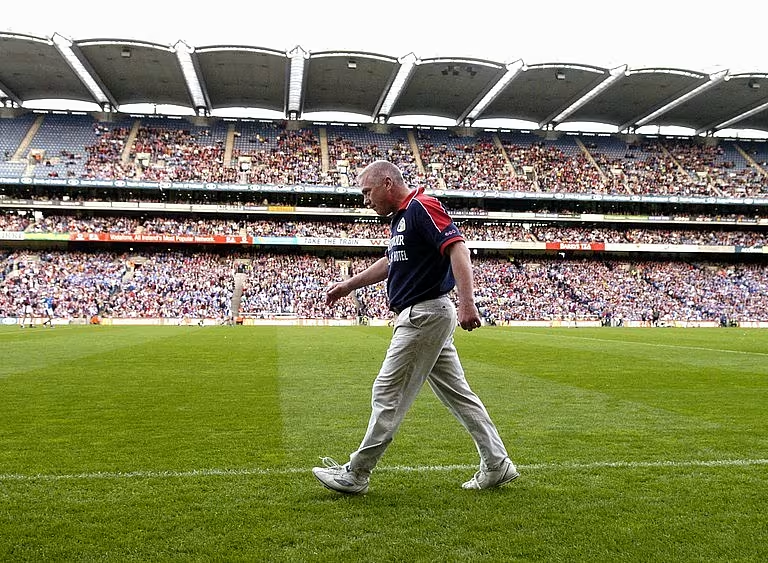
*****
Ó Sé left Kerry, the county he had given his life to, only a week before taking the Westmeath job. It broke his heart, and he arrived in the Midlands with a point to prove.
For a small county hoping to make an impact on the national stage, it was a dream come true.
John Keane, the only Westmeath man to win multiple All-Stars (the first of which would come in 2004), told Balls of his memorable first encounter with the Kerry legend.
I’ll always remember the first day we met him in the Citywest. We were standing at the bottom of the stairs, and he arrived in his suit at the top of the stairs.
It was kind of like a grandmaster getting ready to direct us all! He was introduced and we were all just in awe, not knowing to whether to laugh, clap, say hello.
With Páidí was always going to come a spot in the limelight, but the Westmeath panel could not have known what lay around the corner. It was a year spent in front of a camera, something they were given little say in.
In typical Ó Sé style, there was no prior warning before the arrival of the documentary crew. Make no mistake about, this was very much his venture. Keane recalls the first time the cameras showed up at Westmeath training.
I don't think Páidí sought permission or anything like that! He just arrived one day with a crew, and we didn't know if it was filming us or if it was filming Páidí. It wasn't until after it was all finished and the whole season's over we heard there was a documentary being done about Páidí.

Ó Sé arrived in Westmeath as a broken man. He had been ruthlessly dispatched by Kerry, and it hurt him. Sitting in his kitchen, in Marooned we are treated to a rare glimpse of Páidí away from the watchful eye of the public. It was raw.
"Nothing meant more to me than the green and gold." One suspects that was still the case.
"They probably thought I would go away quietly. Give him enough time and he will walk the plank. No (he laughs). My own wife and family said 'make them fire you'."
He admits that he 'gave no real thought' to his decision to take the Westmeath job. Perhaps that showed early on.
It was not a good start to the year for the county. The league was a bit of a disaster, as they failed to win any of their first six games. That included a meeting with Kerry, an occasion Ó Sé described as 'the hardest day of his life'.
Maybe he was still getting over his Kerry breakup, perhaps it took him a while to acclimatise to his new surroundings, and them to him. Either way, Páidí was not clued in in those early days. Joe Fallon, the only Westmeath player to be interviewed in Marooned, told Balls:
With Páidí there were times when he missed training, or when he wasn't as tuned in as he should have been. I think that’s well documented. Tomás Ó Flaharta done a lot of the groundwork as well...
Nobody knew at the time that we were going to go and win that Leinster.

In typical Kerry style, the smell of the summer grass brought out the best in Páidí. This was championship season.
Westmeath were set to play Offaly in the first round, a team they had not beaten in Leinster since 1949. 92-year old Joe Fox, a lifelong Westmeath supporter, perfectly summed up the tortured existence of football obsessives in the county in Marooned.
"I was often in a crowd and some talk would come up about football. I'd be ashamed to say that I was from Westmeath. We were a kind of a laughing stock."
If Westmeath were to ascend up the footballing ladder, this would have to be the first of many demons they needed to put to bed.
They did, but only just. They would win the game by a single point. This was the start.
As an eight-year old in the county, even I could feel the buzz in the air. I was lucky enough to travel to every game that year. They are still my fondest memories of the GAA.
Something was happening. Joe Fallon described the Offaly win as 'tangible evidence' that progress had been made. They were soon to face a much bigger test.
While Dublin were not the superpower they are now, they were still Dublin. Westmeath were Westmeath. But now, Páidí Ó Sé was in the mix. Joe Fallon explained:
You can talk about tradition, and someone could argue that it doesn’t matter, but it kind of does if you're like Westmeath...
If you were to look back at Páidí, that was the area he was best at. Just giving the team talks beforehand and even afterwards. Maybe in Westmeath for a long time there was that inferiority complex that we shouldn’t be able to beat Dublin or win things, that was definitely knocked out of us.
We did believe that there was no reason why we couldn’t go and win it.
To this day, this is the game that sticks out in my memory more than any other. To see the current landscape of Gaelic football, an upset such as this must seem like a lifetime ago. Westmeath beating Dublin in Croke Park, we are not that far removed of the days when you could dream.
Westmeath were incredible in that game. Dublin came flying out of the traps, but the Lake County soon rose to the challenge. Joe Fallon came off the bench and kicked a huge score late on. It ended in a two-point win.
For all of those decades spent in the doldrums, when Westmeath supporters were ashamed of their own county, such days were unimaginable. Now, under Páidí, the team had an identity. It was a winning one.

In Marooned, it is at this point we are treated to one of the many famous speeches he delivers to the players.
"Now we have our own identity. What more have we got to do now lads, only beat the teams and counties that have tradition. We are slowly, but surely, making our own mark on this situation."
One may suspect that these famous speeches were for the cameras, and that Páidí acted different behind closed doors. He didn't.
In fact, for him there were no such things as closed doors. He had lived his life in the public eye. Everybody wanted a piece, and he gave it to them. John Keane summed it up best:
Páidí wasn't performing for the camera. I mean he was well used to being in the limelight, he was always being watched, always being looked at. No matter if he was having a cup of tea with you in Mullingar, or having a pint in the Greville Arms, it didn't matter.
He was always being watched. It was always somebody wanting to talk to him, so he's well used to it. He knew how to carry himself.
He was just an exceptional man.
Joe Fallon explained what it was like to be in the middle of one of the Ventry native's famous speeches, and how it helped develop that 'us against the world' mentality that would carry Westmeath so far:
Páidí’s use of English and some of the vocabulary at times would be fairly choice, I’m sure there were some words that you wouldn’t find in any dictionary!
At the same time, he got his message across. When he spoke you listened. Early in the year, the guys who weren't listening were gotten rid of. There was no soft spot to him...
That mentality was there that we were underdogs and nobody expected us to do anything, but we were going to do it anyway. That was his motto, and it definitely worked.
It wasn't just the players who were caught under his spell. The people of Westmeath had become some of the most dedicated supporters in the country. 15,000 people showed up to an O'Byrne Cup final in Mullingar early in the year. It remains the highest attendance ever seen in Cusack Park.

They made the journey to Croke Park in droves, the venue of each of Westmeath's championship games in 2004. They were all in.
A fairly routine victory over Wexford followed in the semi-final, and Westmeath were back in a Leinster final for the first time since 1949. Defending champions Laois, and Mick O'Dwyer, stood in their way.
That final is one Westmeath probably should have won on the first time of asking. They were the better team, but Laois grabbed an equaliser late on to send it to a replay. Westmeath had blown their only chance, or so the narrative suggested.
As John Keane explains, the people of the county ensured they would be ready for battle the next day.
I remember the deflation. Conway scored a point towards the end and it totally deflated us, because we were set to win. The one abiding memory that I always have is that we had a huge support.
We might have been slightly deflated, but I always remember going in under the stand to the dressing room, and the Westmeath crowd were rising and applauding like we have won a bloody All-Ireland.
That gave us a huge boost. It was something we would have spoken about, what it meant to everyone in Westmeath, how proud they were and not to let them down the next day.
As you might expect, their manager would ensure they was no time to feel sorry for themselves. It was THE iconic speech from Marooned, and merely quoting it won't do it any justice. Just take a look for yourself.
The line 'a grain of rice will tip the scale' has since become one of the most famous phrases in the GAA.
Despite the best efforts of Páidí, and of the feverish Westmeath support, they would not start the replay in the fashion they would have hoped. In fact, they would be held scoreless for the first 23 minutes of the game. However, once Alan Mangan got that first score they never really looked back.
The devilment, tightness, and intensity that Ó Sé demanded were all there. At one stage in the second half they would lead by six points. When the reigning Leinster champions inevitably clawed back that deficit, they had the 'steely toughness upstairs'. They would win by two points.
It was a performance that had Páidí written all over it, and when the final whistle sounded, the scenes were remarkable. It was a scene we won't see repeated in the GAA, as the overjoyed crowd rushed onto the pitch to embrace their heroes. John Keane remembers:
It was pure elation, and pure exhaustion. It had been such a long year with that as our focus, and then we achieved it and I remember just collapsing. Back then, thankfully the whole crowd invaded the pitch. We were engulfed in this sea of maroon and white.
I just collapsed at one stage. I then got picked up, not because I was after putting in a massive performance, but being carried shoulder high. God knows where I would have ended up otherwise!

Away from the pandemonium that had engulfed them on the pitch, the relative peace of the dressing room would allow Páidí to bring a sense of perspective about what had just been achieved.
"You are now the ambassadors, not just of your own county, but all of Ireland. You have a major duty, in that young boys and girls, and young families, will be looking up to the Westmeath football team.
"We will direct those youngsters in the right direction, and it will be a while again before we will waiting fucking however many years it was.
"Listen lads, it takes a good man to take his beating, but it takes a better man who's a winner to keep it inside and hold his head."
A lifelong ambition had been achieved for all of those inside the dressing room. The groundwork had been put in place for years building up to this, but Páidí's arrival brought the bit of cuteness and swagger that was required to get the them over the line. Considering the current landscape of football in Leinster, it could be a while before we see such a feat replicated.
Westmeath would fall just short in the All-Ireland quarter final, losing by two points to Derry. There is any number of reasons for that defeat, be it the four week gap between matches, or perhaps a hint of complacency. Members of the panel still hold regrets over that game, but they had made history. That can never be taken away from them.

In two captivating interviews, the final question asked of John Keane and Joe Fallon was to name their abiding memory of Páidí Ó Sé. Their answers perfectly typify the two sides of the man. Joe Fallon:
We went on a holiday to Cape Town, and Páidí had been there a year or two before. He was some man to just lie out and fry, no sun cream or anything.
After a couple of days he had to be sore, but he didn't let on. He was tough that way anyway.
For John Keane, it was the rare moments you got alone with the Páidí that will stick in his memory.
He was the one who called me down the time I got my All-Star, when we were out in Cape Town on holidays. He gave me a call to the room and told me to come down to the bar, and he just informed me that I was after getting the All-Star, 'fair play' and 'congratulations'.
It was nice, just the two of us sitting down and sharing a drink. It was very hard to get Páidí on his own.
Another time we were on the plane back home from Cape Town, and everyone was a bit worse for wear. I couldn’t sleep, and Páidí didn’t like flying, so the two of us ended up drinking four or five glasses of wine on the plane together.
The air hostesses were having a heart attack because the two of us were sitting at the emergency exit down the back! You didn’t get too many moments on your own with him, so they’re two lovely memories.
For all of the amazing characters we come across in the GAA, there will assuredly never be another one like 'Pio'. He holds a special place in the hearts of all GAA people, and especially those from Westmeath.
On the 15th anniversary of the county's greatest achievement, they can once again look back fondly on the memories he has given them. They will certainly never be forgotten.




